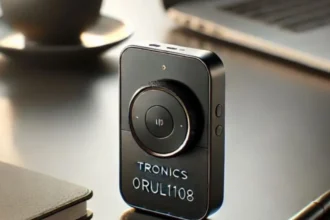Testosterone is an important hormone found in both men and women. Hormones like testosterone are involved in essential bodily processes, which means your health can be negatively impacted if your hormones are out of balance. When testosterone is out of balance, you may suffer from fatigue, cognitive issues, and face other physical and emotional symptoms. Testosterone, however, is not widely understood, and there are some myths surrounding the role of testosterone in the body that should be cleared up. It’s also essential to understand some facts about testosterone and how important it is to the body. With more knowledge of the truth about testosterone, you can be well-informed so that you’re prepared to seek hormone therapy when needed.
Myths about testosterone
- Testosterone causes uncontrollable aggression – Testosterone can influence your behavior, but it’s not specifically tied to uncontrollable aggression. Balanced levels of testosterone can lead to self-confidence, motivation, and assertiveness. Each individual displays these traits differently, and testosterone affects everyone in different ways.
- Only men need testosterone – Women also need testosterone, although the level of testosterone found in women is lower. Testosterone helps women build muscle, and it promotes sexual well-being. If women are particularly low in testosterone, they may benefit from TRT.
- Testosterone therapy is only for bodybuilders. – TRT is medically prescribed for conditions like hypogonadism (low testosterone), not just for muscle gains. Men and women who suffer from low levels of testosterone can benefit from TRT. This therapy can help provide the optimum levels of testosterone for the body based on age, sex, and other factors.
Interesting facts
- Testosterone shapes your body: During puberty, testosterone deepens your voice and triggers the growth of facial hair. Beyond puberty, it continues to help you build muscle and gain strength. Testosterone also gives you energy, which helps you stay active.
- It boosts your mood: Low levels are linked to depression and fatigue. When balanced, testosterone can improve your energy and enhance your cognitive function. It helps you focus and can improve your memory.
- Levels are declining: Modern men have 15–20% less testosterone than previous generations. These declining levels are likely due to environmental factors like stress and obesity. Lifestyles can also influence testosterone levels. Being more active and eating a diet rich in whole foods with lean protein can promote healthy testosterone levels.
Who needs testosterone therapy?
There are many reasons why someone may need testosterone therapy. Some health conditions lead to hormone imbalance. Testicular issues or problems with the pituitary gland can prevent the body from producing enough testosterone. Like other hormones, it naturally declines with age. Chronic illnesses can also lead to lower testosterone levels. Other factors that can contribute to low testosterone include lack of sleep, a poor diet, and certain drugs or medications. When your testosterone levels are low, you may experience fatigue, low libido, low energy, erectile dysfunction, depression, and irritability. If you experience these symptoms, you may benefit from reaching out to a medical professional. They can perform a blood test and other diagnostic screenings to determine whether you’re a good candidate for TRT.
Understanding the testosterone therapy
As with any medical treatment, it’s important to be aware of the potential side effects of testosterone injections when undergoing testosterone therapy. The misuse or overuse of testosterone can have a lasting impact on the body. Women who misuse testosterone can face irreversible effects like a deepened voice, facial hair, and clitoral enlargement. Men who misuse testosterone may see breast enlargement, acne, or male-pattern baldness. It’s important to work closely with your healthcare provider when going through hormone therapy to ensure you have a proper treatment protocol based on your needs, goals, and medical concerns.
What to expect from testosterone therapy
Hormone therapies aren’t instant fixes to hormonal imbalance. Just like other hormone therapies, TRT takes time to work. You may see some results within a few weeks, but the long-term results are the main goal of undergoing testosterone replacement therapy. You may begin to feel more energized and focused soon after starting therapy, but other effects can take longer. Over time, you may begin to see more muscle tone, experience a higher libido, and find it easier to lose weight. TRT is a tool that you can use to help your body reach normal testosterone levels. Along with a healthy diet and regular exercise, you may find an overall improvement in your physical health and your mental well-being.













